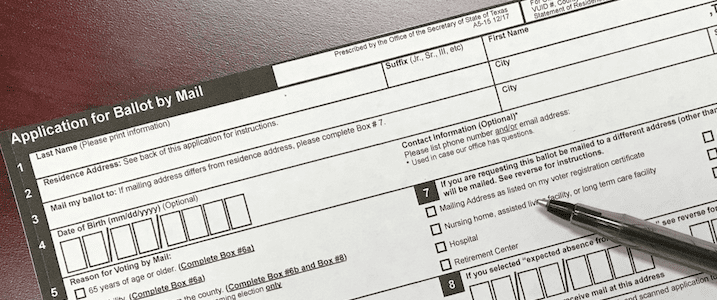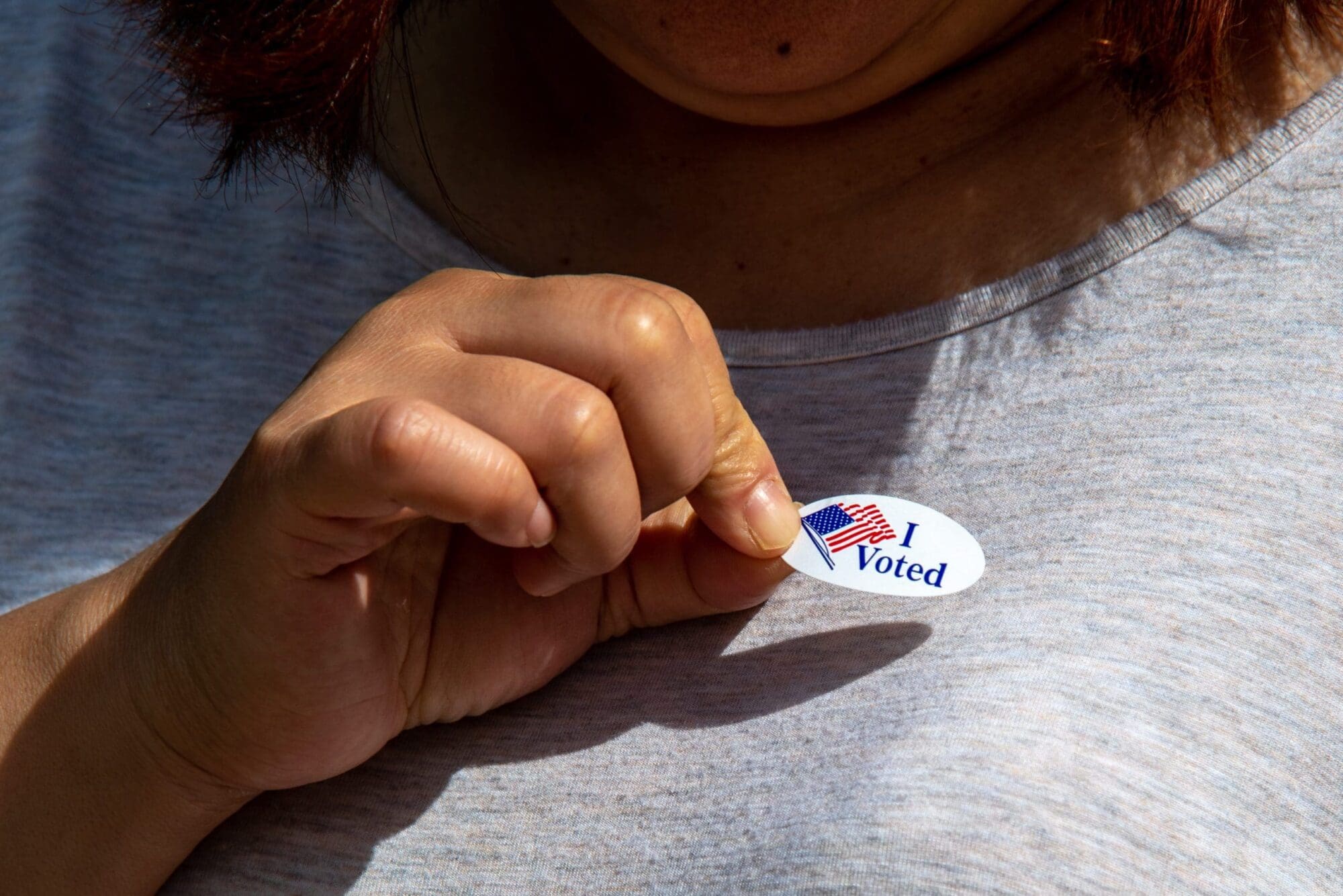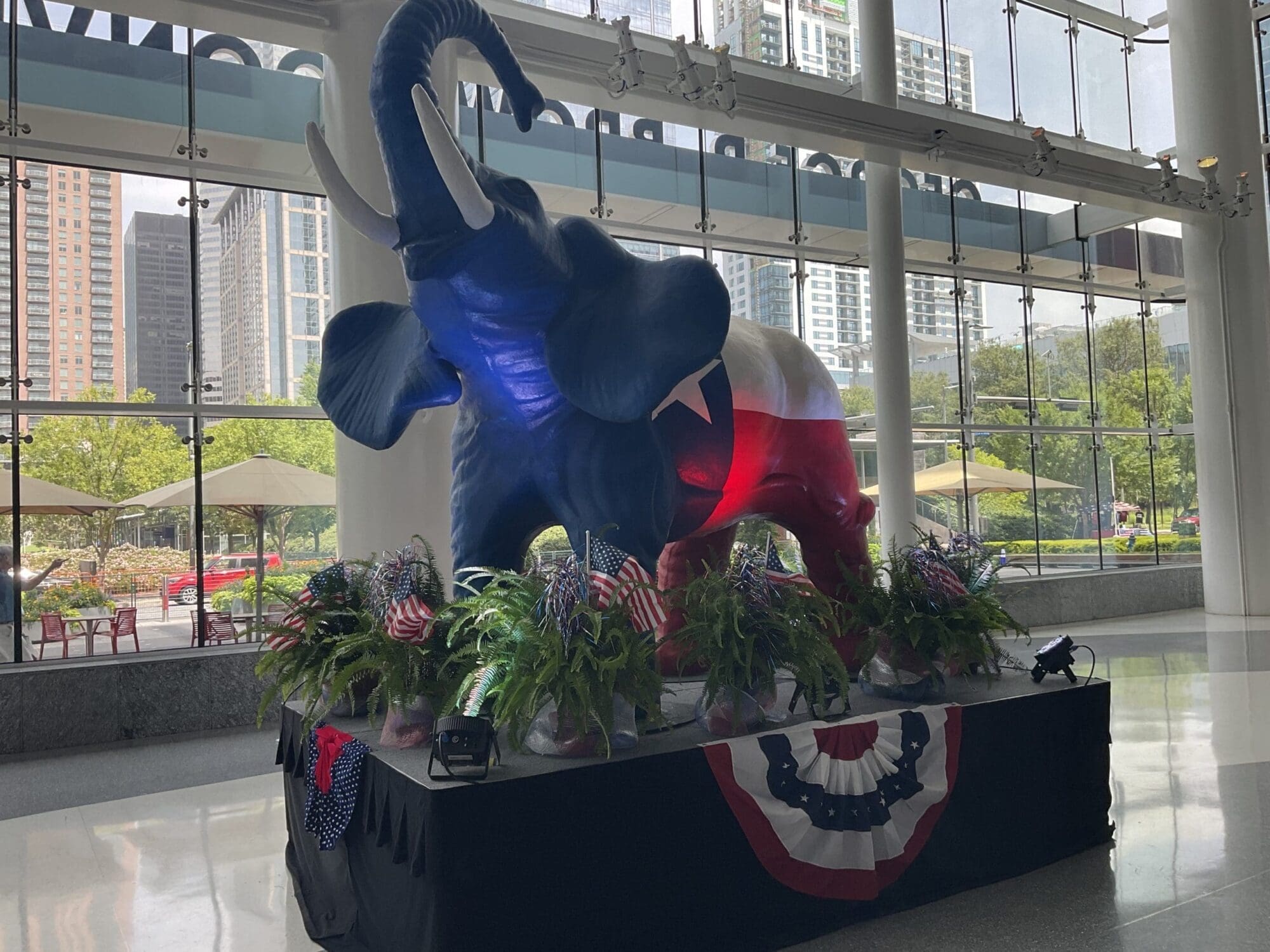South Texas officials made their first arrest in an ongoing investigation of mail ballot voter fraud in the Rio Grande Valley, and they expect it won’t be their last.
Starr County’s Special Crimes Unit (SCU) arrested Ernestina Barron, a Rio Grande City school district employee, for multiple counts of voter fraud related to illegal mail ballot harvesting.
 Barron, who also works as a politiquera or “voter outreach worker,” is accused of unlawfully filling out mail ballot applications for the upcoming March primaries for at least three voters who aren’t eligible to vote by mail.
Barron, who also works as a politiquera or “voter outreach worker,” is accused of unlawfully filling out mail ballot applications for the upcoming March primaries for at least three voters who aren’t eligible to vote by mail.
Barron now stands charged with three misdemeanor election fraud counts and three state jail felonies for fraudulent use of ballot-by-mail applications.
This is the first election cycle since a new law enacted last year to crack down on mail ballot voter fraud took effect. Senate Bill 5 made it a state jail felony to provide false information on a ballot application or submit an application without a voter’s permission. Gov. Greg Abbott and a coalition of conservative organizations strongly supported the bill’s passage.
“Our legislature has given us a very clear mandate to begin and try to prevent voter fraud,” said Starr County District Attorney Omar Escobar.
Escobar’s office began the voter fraud probe when county elections officials alerted him to questionable mail-in ballot applications. The DA’s office asked the SCU to join the investigation and enlisted the cooperation of County Attorney Victor Canales.
SCU Commander Robert Caples welcomes Starr County taking the lead in looking into voter fraud. He told El Tejano:
“Now there has always been talk about cleaning up elections and going after voter fraud. From my experiences, it has always been nothing but talk. For the first time, as far as I can remember, the District Attorney and County Attorney are taking action and we wanted to be a part of it.”
SCU investigators interviewed three voters who Barron “assisted” with ballot-by-mail applications. All three voters said Barron had them sign an application, then she filled in all or part of the remaining information – including checking the box indicating the voters were disabled. All three confirmed they are not disabled.
Caples said Barron’s violations were easy to catch.
“If we were able to find this right out in the open, then it leaves the question what else is out there,” Caples said. More arrests are expected.
The investigation has also uncovered non-citizens on Starr County’s voter rolls, which have been the subject of an ongoing federal lawsuit since 2016.
“We can confirm for sure that there have been persons, that there are persons, who are registered to vote who are non-U.S. citizens,” Escobar said last week.
Caples hopes other counties will follow Starr’s lead and dedicate resources to cleaning up elections.
“When people realize the things that can be found in this type of investigation, then maybe other counties will do the same,” Caples said. “If we can find these types of violations in Starr County, just imagine the can of worms that is waiting in Hidalgo County.”
Nueces County elections officials don’t have to imagine. Last week, the watchdog group Direct Action Texas (DAT) filed 30 new election fraud complaints involving illegal mail ballot harvesting in a 2017 local election there. The Texas Attorney General’s office already has three open election fraud investigations in Nueces County, but sources told Texas Scorecard the AG’s office hardly has the resources to look at election crimes after the fact, much less as they are ongoing.
Past investigations by DAT in Tarrant, Harrison, and Dallas counties triggered ongoing criminal investigations by the AG’s office; all involve illegal mail ballot harvesting. The AG and Dallas County District Attorney’s offices are also jointly investigating mail ballot fraud in last May’s city elections.
In Texas’ Rio Grande Valley, though, where the politiquera system is an accepted tradition that often crosses the lines between legal voter “assistance” and voter coercion or outright stealing (or buying) of votes, enforcement is challenging. Efforts to prevent and prosecute voter fraud are often mischaracterized as “voter suppression.”
Caples says that’s flat-out wrong. People who vote legally, he says, “have zero issues with law enforcement or with any of the prosecutors.” The SCU’s only interest is enforcing Texas law in Starr County. Escobar agrees.
“We want to encourage everyone to vote but we want to make sure it is the voter’s vote, not someone else’s vote,” said Escobar.





